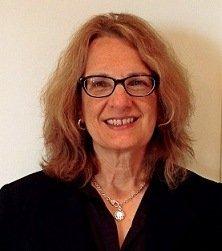The number of women receiving treatment for substance use disorders could rise under changes that will be implemented as part of health care reform, according to an expert at UCLA.
Christine Grella, PhD, Professor-in-Residence in the Department of Psychiatry & Biobehavioral Sciences at UCLA Integrated Substance Abuse Programs, says some aspects of the Affordable Care Act are likely to make it easier for women to access care.
She spoke about the implications of health care reform for addiction treatment for women at the recent American Psychological Association annual meeting.
Dr. Grella noted that men are about twice as likely as women to report having a substance use disorder. A higher proportion of men – 30.5 percent – with current substance dependence seek some kind of help, compared with 24 percent of women.
Women are likely to cite lack of insurance, as well as social stigma, as barriers to addiction treatment, Dr. Grella said. While men cite these barriers too, they are disproportionately influential in women.
Women who seek substance use disorder treatment tend to have a more severe clinical profile, including more co-occurring disorders such as anxiety, depression and trauma. They also tend to have multiple problems such as lack of childcare and employment. But while women are less likely to seek addiction treatment, they are more likely than men to seek health services in general, Dr. Grella noted. They are also more likely to use mental health services.
According to the Treatment Episode Data System (TEDS) collected by the Substance Abuse and Mental Health Services Administration, a much higher proportion of women than men rely on public insurance to finance addiction treatment. Women are more likely to be referred to treatment through child welfare services or other health services, while men are more likely to be referred through the criminal justice system.
“Because one of the main tenets of health care reform is to integrate addiction treatment within primary health care services, and because the Affordable Care Act expands public insurance and promotes addiction treatment within primary health services—including preventative screening—it is likely more women will utilize treatment for dependence disorders,” Dr. Grella said.
She is concerned that as health care reform rolls out across the country, the tremendous variation among states, especially in patients with Medicaid, will affect how many women seek addiction treatment.
“The kinds of programs most likely to help women are accredited, with highly trained staff, and are Medicaid-eligible. They also have links to mental health services, provide social services beyond health care and are of longer duration, which is important since women tend to have a more severe clinical profile. There are real disparities across the states in the degree to which there are addiction programs that meet those standards,” she said. “I am optimistic that health care reform can bring about great parity in addiction treatment for women, but it may also exacerbate regional disparities, since some states will not be expanding their Medicaid programs.”
Published
August 2013

